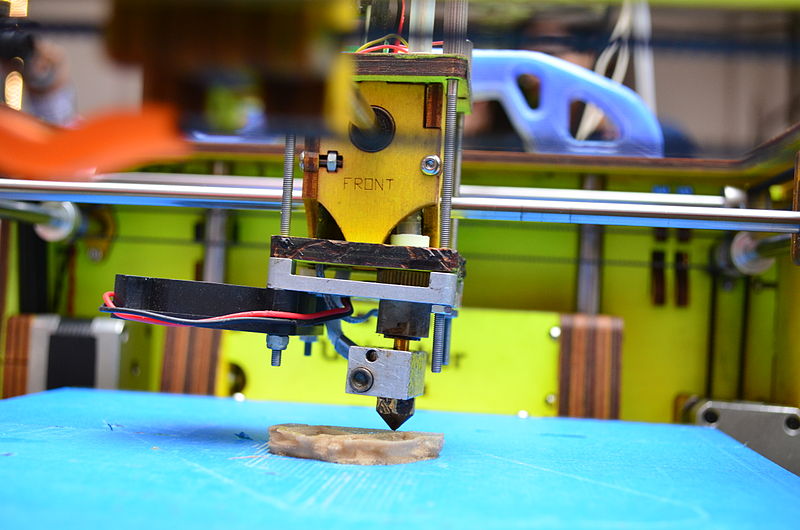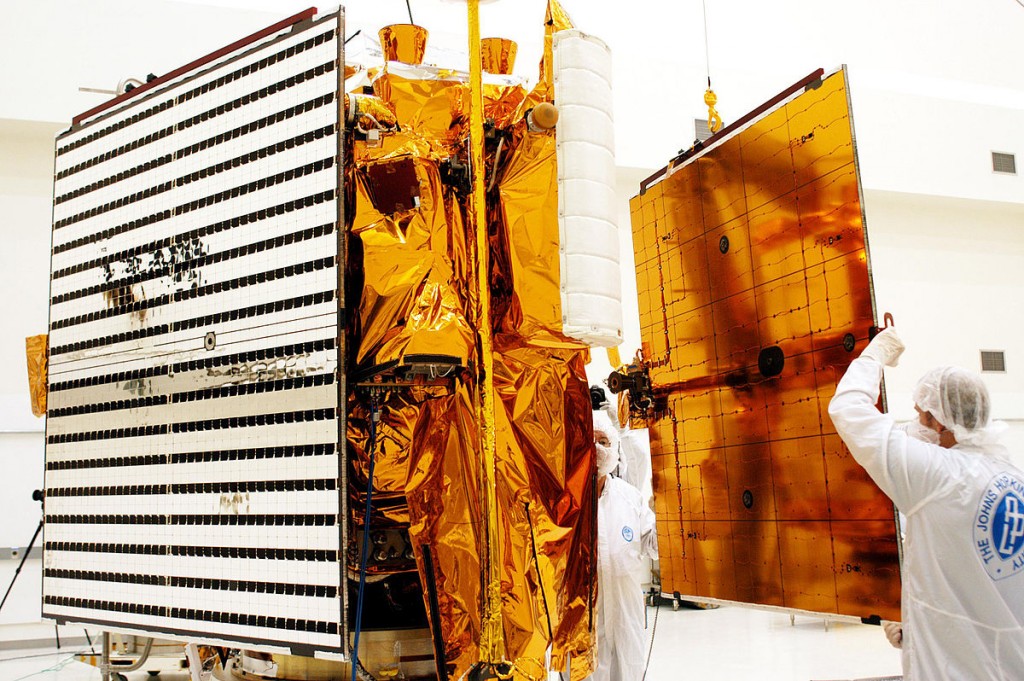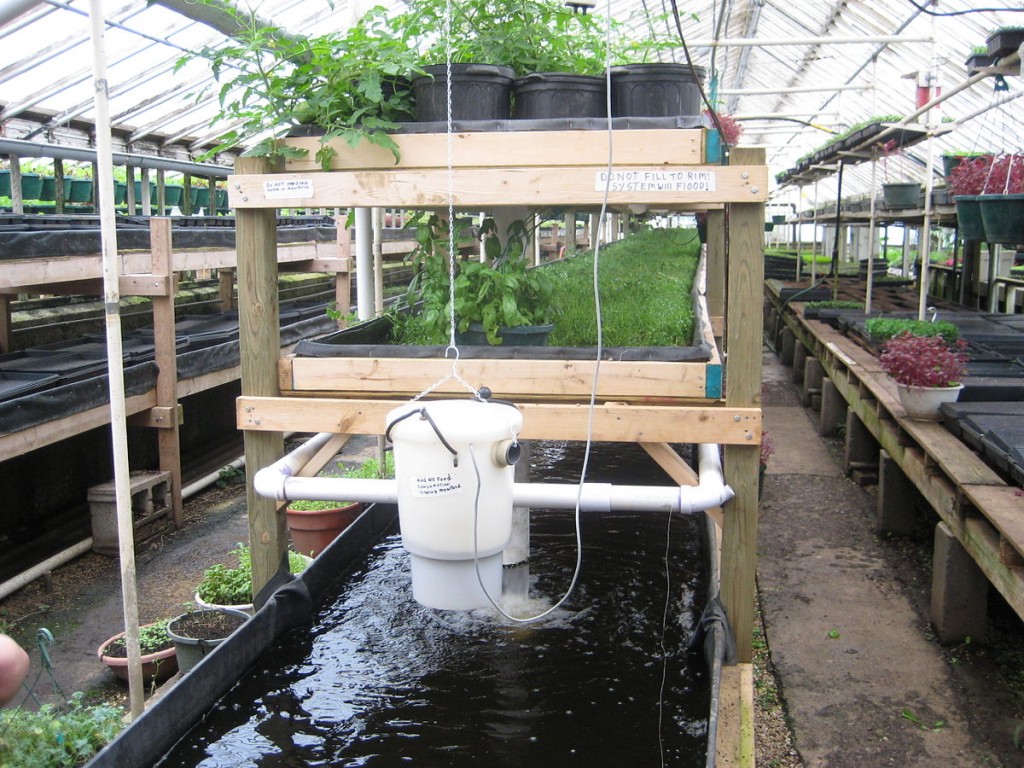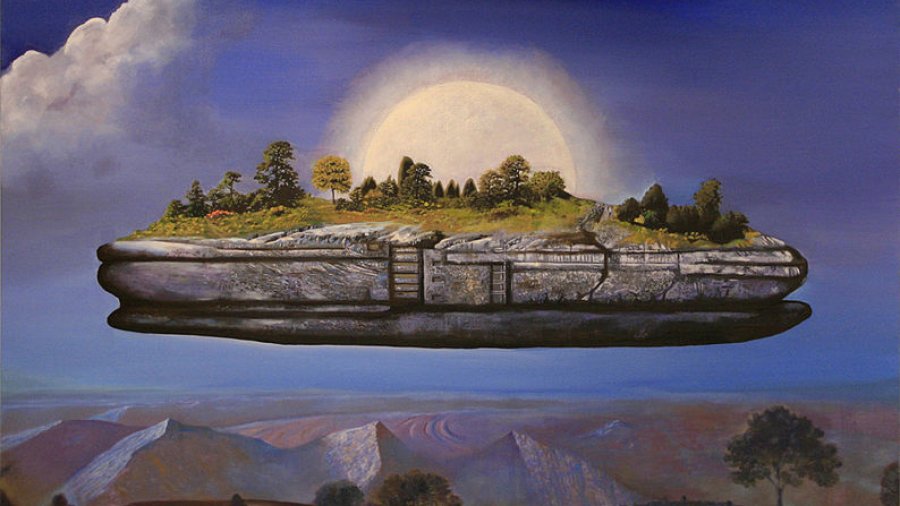We are living in a time of unparalleled technological and societal changes. Like holy-sweet-Neptune-where-are-we changes. That shouldn’t really be news to you (you’re in it, after all), but maybe you hadn’t thought about it much.
Things still move slowly enough that it’s fairly easy, at least for us doomed millennials younger generations, to assimilate all of the developments without looking up from our latest Twitter-feed binge. Technology has made so many leaps and bounds by now that we’re hardly moved to find that Joe Spacerace 3-D printed a kayak or had his car take him on a road trip, or that some humans will soon peace out to go live on Mars. We just carry on, ho-hum.
But regardless of whether you find rapid technological innovation to be unsurprising, oddly surrealistic, or tantalizingly futuristic, it is affecting and will continue to affect you, likely to an enormous degree. In the 21st century, we are bearing witness to changes that are reconstructing our relationship to ourselves, each other, and the world. And this process shows no signs of slowing down. So, you know, we might want to pay attention.

Utopien arche04 by Makis Warlamis, 2010. Photo Credit: Wiki Commons
The Exciting Trend of Decentralization
An obvious way to examine large-scale change and to understand it in more meaningful ways is to look for patterns. One such pattern—an overarching trend that some argue will come to define the transformative technologies of the 21st century—is decentralization. Wikipedia defines decentralization as follows:
“Decentralization is the process of redistributing or dispersing functions, powers, people or things away from a central location or authority.”
Decentralization isn’t a new idea by any means. The term first appeared in writing in the early 1820s to describe an aim of political movements which sought an alternative to centralized government and an oligarchical concentration of power.
Since that time, the contexts in which the term “decentralization” is used have broadened (Aldous Huxley notably championed industrial decentralization in the 50s), and in the past few decades have expanded into many spheres, such as energy, food production, education, and work.
Ray Kurzweil, the director of engineering at Google and a brilliant fellow (eyebrow-raising, controversial ideas notwithstanding), said the following in a 2013 interview:
“You brought up a good term—decentralization. That’s the nature of the future. The 21st century technologies are decentralized rather than centralized. The Internet is decentralized. Some piece of it goes down, the information just goes around it. There’s an inherent stability to decentralized technology. There [are] new water technologies where, locally, you can create very clean water at a very low cost. Dean Kamen’s Slingshot machine that costs $2,000 can meet the water needs of 100 people, and they’re already putting them in third-world countries. […] Decentralized energy is coming. Solar power is doubling every two years. It’s already over 1% of our energy. People say, “Oh 1%, it’s kind of a fringe player.” They’re ignoring the exponential growth. 1% is only seven doublings from 100% and it’s doubling every two years.”
So, in essence, when something is decentralized, it is in many places or in the hands of many people, rather than being concentrated in one area or in the hands of the few.
Specifics, Wow
The best way to explain this trend is to illustrate it, so: details. Here are seven examples of sectors/areas which are being impacted by decentralizing initiatives:
Manufacturing
3-D printing is still far enough from mainstream that we don’t consider it an integral aspect of our lives. But in all likelihood, it soon will be. 3-D printing technology is insanely versatile, having already been used for architecture, automotive and aerospace engineering, medicine, industrial design, civil engineering, fashion and food. Much of what has heretofore been mass-produced in factories may soon be printable in any household, with designs downloadable online.
A house is being 3-D printed in Amsterdam, and some folks plan to drive a 3-D printed car cross-country circa 2015. RepRap is a 3-D printer that self-replicates. Engineers at Cornell have 3-D printed human ears; 3-D printed prosthetics are meeting a serious demand in the developing world; and 3-D printed organs are situated to revolutionize transplants of various kinds. 3-D printing could potentially provide clothing, food, medical devices and other items to people in developing countries. Using recycled plastic and reducing transportation costs, 3-D printing could also have a dramatic environmental effect. Watch for 3-D printing to disrupt and decentralize numerous industries.

3-D Printer. Photo Credit: Wiki Commons.
Education
Double-whammy of the current university education debacle: as tuition fees continue to soar to egregious new heights, so many people are now receiving some post-secondary education that the relative value of a degree is decreasing. Meanwhile, the world of online education gets bigger and better, with platforms such as Coursera and Khan Academy offering hundreds of free, high-quality courses. Many universities are also beginning to offer open courses online (see Yale and MIT).
I attended a traditional institution for my degree and don’t dispute that there are many benefits of doing so. But I think it’s clear that the current system is not for everyone. The trend of the decentralization of education empowers those who wish to learn but don’t desire an Everest of debt. It’s easy to imagine a point in the not-too-distant future when free or vastly-reduced-cost online education is recognized as a viable alternative to a degree with six-figure price tag, forcing traditional institutions to crumble or re-imagine themselves.
Energy
As Kurzweil mentioned in the interview I referenced above, solar energy has experienced steady growth in recent years. As fossil-fuels dry up and renewable energy (wind, geothermal, hydropower, natural gas, etc.) continues to become more cost-effective, we are likely to see a continual shift away from a central electrical grid. A recent report by Colorado’s Rocky Mountain Institute suggested that if renewables continue to be adopted at the current rate, “off-grid systems” will be “cheaper than all utility-sold electricity in the region just a decade out from today.”
This trend is of course environmentally impactful and also encourages self-sufficiency. Versatile and cost-effective renewable energy technologies are already being utilized to great benefit in the developing world. The World Energy Project and Power a Village are two non-profits that were started by students at my university to bring renewable energy to those who need it in developing countries.

Technicians install solar panels on NASA’s MESSENGER spacecraft. Photo Credit: Public Domain
Project Funding
Historically, funding for large entrepreneurial, artistic, or non-profit endeavors has come from venture capitalists, angel investors, and other people who barely exist to the average person. Crowdfunding changes this, giving people the opportunity to pitch ideas to large communities of strangers who will often generously toss in some money and fund the project. Everyone has heard of Kickstarter by now, but it’s far from the only option. The decentralized funding model has been creatively applied to other sectors as well. Check out Watsi, a brilliant non-profit which crowdfunds medical procedures for those who need them but can’t foot the bill.
Information & Publishing
The rise of the Internet utterly rearranged shtuff (surprise, surprise, eh?). Previously, large companies were the major mediators and gatekeepers of the realm of book publishing, journalism, and the general dissemination of the world’s knowledge and information. Arguably they retain dominance, but now, any starry-eyed hack like me with a keyboard and a dream can utilize any number of online platforms, channels, and tools to broadcast a message and find an audience. Similar story with music and other art forms.
Food
A staggering statistic: about one third, or 1.3 billion tons, of the food produced by the current industrial food system is wasted each year. Meanwhile, about 842 million people worldwide do not have enough to eat. These realities alone underscore the vital necessity of developing more efficient and effective means of food production and distribution. Change has been simmering for some time and innovations have appeared in different forms.
Local, organic farms and markets have been on the rise in the past few decades, with many producing year-round with greenhouses. World Wide Opportunities on Organic Farms (WWOOF) is a network which connects volunteers (who work part-time in exchange for food and lodging) with organic farms in over 40 countries. FarmBot is an open source, automated precision farming machine. Urban farming is on the rise, with the largest in the world soon to come to Washington D.C. As mentioned above, 3-D-printed food is another legitimate, albeit bizarre, recent development. These decentralized technologies hold promise for a future in which less food is wasted, and food is healthier, fresher, and accessible worldwide. Similar case for water: see WarkaWater and the Slingshot.

A greenhouse in Milwaukee with an aquaponics system. Photo Credit: Wiki Commons.
Hotels
The hotel industry has recently faced competition from Airbnb, a rapidly rising company which connects travelers and tourists to residents willing to rent out a couch or a room. Couchdsurfing does the same thing, except it’s free—couchsurfers putting each other up in the spirit of community, with a “pay it forward” mentality. The rise of Couchsurfing, crowdsourcing, car-sharing (see Zipcar), and even clothes-sharing or swapping (see DigNSwap) has lead to the coining of the term “sharing economy”, a concept which seems intimately connected to decentralization and a shift of emphasis toward communal resources and generosity.
Dude… What Does it All Mean?
Hell if I know. Well, I have a couple notions, but this trend could have countless implications. I’ve barely scratched the surface with these few blurbs; there are wilder ideas (some of which I don’t claim to understand) afoot in various countries and circles: crowdsourced laws, cryptocurrencies disrupting banks, a decentralized YouTube alternative, an even more decentralized Internet, etc.
It’s impossible to know where all of this is “heading”, particularly when you recognize that this one macro trend, however legitimate and interpenetrating, is still situated within the vastly complex and rapidly evolving behemoth of humanity’s technological superstructure. An unbelievable amount of shit is happening, and Google might just decide to rule us all tomorrow anyway. Mostly kidding.
Dystopian half-jests aside, many of these decentralized (how many times can I say that word in one article?) developments seem, ostensibly, to be favorable for mankind. As already noted, decentralized technologies hold potential for a greener paradigm in the midst of the current environmental crisis and show promise for aiding the suffering masses of the developing world.
Projects, Possibilities
Furthermore, when one combines a few of the elements that I’ve discussed here, it’s easy to see great potential for community and individual empowerment. Think about it: energy, food, water, funding, manufacturing, & education, accessible virtually anywhere and hardly reliant on the existing system. What could you build?
As I write this, some groups are answering that very question.
Valhalla Movement
Take Valhalla Movement for example. After raising $28,000 with a Kickstarter campaign in 2013, they built an Earthship-inspired greenhouse in Montreal on land that they will use as a headquarters to educate people, both in-person and online, about living in sustainable communities. They also created their own content and crowdsourcing platform and are currently working on fitting the greenhouse with solar panels.
Open Source Ecology
Open Source Ecology is another exceptional project that harnesses decentralizing technologies. With the tagline “Open Source Blueprints for Civilization. Build it Yourself.”, this project is “developing open source industrial machines that can be made for a fraction of commercial costs.” Open Source Ecology raised over $63,500 in a successful Kickstarter campaign in 2011 and has since worked on developing the ‘Global Village Construction Set’ (GVCS).
“The aim of the GVCS is to lower the barriers to entry into farming, building, and manufacturing. It’s a life-size lego set that can create entire economies, whether in rural Missouri, where the project was founded, or in the developing world.” In 2013, Open Source Ecology constructed a “microhouse” with their equipment, and in a recent Reddit AMA, the founder said others had begun building their homes with the machines as well.
Neato, Gang
I’m fascinated by initiatives of this kind and will be writing more about these and other related projects in the future. As one examines the possibilities that arise with decentralized technologies, a few themes begin to emerge: self-sufficiency, sustainability, generosity, community, & empowerment. Cool stuff, by my humble estimation.
As the world continues to more closely resemble the stuff of science fiction, the least we can do is keep our eyes open for Google’s robots. As technology diversifies, we ought to probe it, question it, and seek to understand the ends to which it is being applied; we ought to consider who is using it, their motives, and how, as a global community, we might use it more effectively. F#@% the NSA.
“Technology is basically neutral. It’s kind of like a hammer. The hammer doesn’t care whether you use it to build a house, or whether a torturer uses it to crush somebody’s skull.”
― Noam Chomsky
If this was agreeable, follow on Twitter or subscribe via email/RSS for updates.
P.S. The subreddit /r/Rad_Decentralization was integral to the research that went into this article. If you’re intrigued by these ideas, you should definitely check out the community over there.
About Jordan Bates
Jordan Bates is a Lover of God, healer, mentor of leaders, writer, and music maker. The best way to keep up with his work is to join nearly 7,000 people who read his Substack newsletter.




